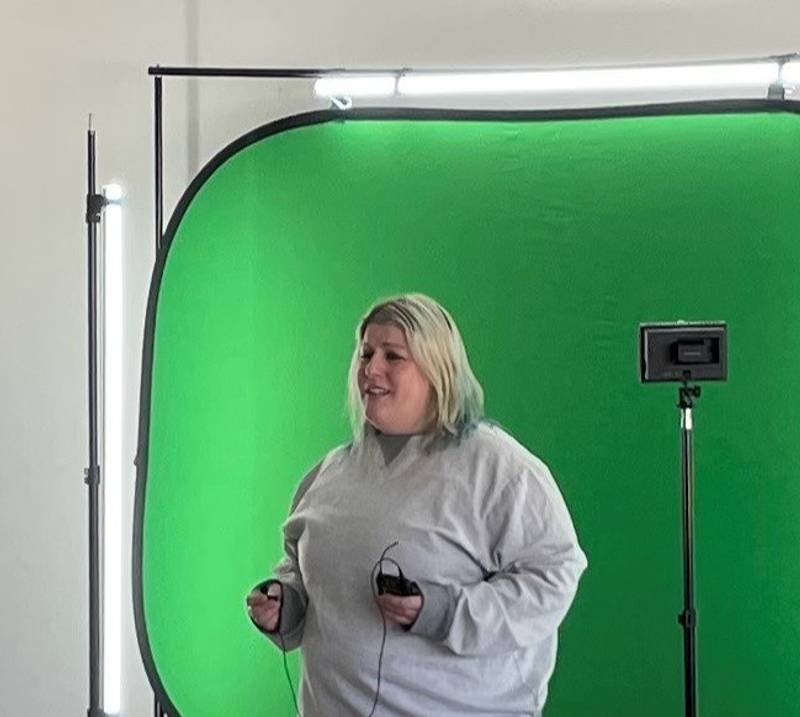Can sports psychologists help everyone to win at life? Deputy Editor Jennifer Gledhill speaks with some to find out if an Olympic mindset could benefit us all…
02 July 2024
Participating in the Olympics surely has the potential to take anyone to the brink. You've spent your whole life training for that split-second opportunity to grab a medal, and the whole world will be watching you win or lose. In recent games, the spotlight has shone on the psychological cost of competing at such a level. When Simone Biles pulled out of her gymnastic events at the Tokyo Olympics stating, 'At the end of the day, we're not just entertainment, we're human beings,' she brought the mental challenges that elite sportsmen and women face to the foreground.
No wonder then, that the role sports psychologists play in their work with athletes now feels more widely recognised and appreciated. Dr Chris Rowley, Deputy Head of the School of Psychology at Leeds Trinity University, has worked with British Olympians and says that his role is two-fold: 'it may be sport-specific reasons why an athlete has sought out psychological support in the first place, but the work that I typically do with my clients tends to place the spotlight on their very human experiencing of their sporting endeavours, aside from the attention and accolades.'
So, the first job of a sports psychologist sounds like it involves putting to one side the drive for medals and discovering what helps each athlete thrive as an individual? 'Absolutely' says Dr Andrew Manley, head of sport, exercise and health sciences at Leeds Beckett who has a long history of supporting Olympians.
'Put simply, we look at understanding human behaviour that happens to be within a sporting context. What is most important for all of us is to acknowledge is that we sometimes need tools and support to keep mentally well. Whatever your goal is – whether it's to be a concert pianist or a top CEO – it starts with getting the foundations right. Asking yourself if you are okay, physically and mentally, is always the first port of call. As a sports psychologist, we are working with people who are often perceived as superhuman because they have certain physical, genetic, and mental qualities. You don't get to be part of that club without a huge amount of talent, but… they don't do it all on their own. They will need support and tools to keep mentally well – like all of us.'
Put well-being before winning
Dr Stacy Winter, associate professor in applied sport psychology at St Mary's University in Twickenham, who has worked with Olympians from pre-London 2012 to the upcoming Paris 2024 Games, also welcomed Biles sharing her story.
'Her decision was a powerful illustration of an elite athlete making a choice based on what was best for her as a person. We've seen an increasing number of Olympic and professional athletes speaking openly about their mental health battles. These messages are often in contrast to their superhuman media portrayals and exacerbated by the "win at all costs" sporting cultures many are exposed to. Hearing more and more athletes share their stories has helped normalise seeking psychological help. The takeaway we can all get from this is we don't have to be in crisis to ask for support, we can benefit from it at any time in our lives.'
Rowley agrees. 'Historically there was a stigma attached to sports psychology; the suggestion being that it was there for athletes who were "struggling" or "needed help". This understandably left some athletes feeling reluctant to get support.
Thankfully, over time, and with several high-profile athletes endorsing the benefits of working with a psychologist, appreciation and awareness have helped our field to grow and develop considerably, despite it still being a relatively young and emerging field of research and academic study.'
Nurture your positive relationships
And just as with psychological approaches in other communities, Manley is keen to stress that there's not a one-size-fits-all formula when it comes to helping athletes succeed and thrive. 'Every person is different, but a starting point when I work with an athlete is to have a real, honest look at the relationships they have with others. Which ones serve and support them? We are relational beings and none of us can achieve great things without positive relationships. Are they spending time nurturing and maintaining the ones they have?
Or, on the flip side, do they need to ask whether other relationships are no longer supporting them to get to where they want to be? This is something that we all need to do from time to time. I would say what's different about Olympic athletes is that they put a lot of pressure on themselves. You'll find that they are incredibly passionate and driven, but to the point in which they forget that it's okay to ask for support, and it's okay to lean on others.'
Manley adds that relationships for elite sports people can come under a tremendous amount of strain and in some ways, the work with them is the same as what psychologists may do with people outside the sporting field. 'It's essential to have a network of people to support you.
Relationship science has been a hallmark of the work I've done with Olympians, but I think it's relevant for everyone; identify your support network; the people who you can rely on for honesty and support, then nurture them. Equally, don't put off having honest conversations with people whose relationships are causing you a bit of a challenge.'
Focus on your values, not just your goals
When we have a singular goal in our lives – we might safely assume that for Olympians it's, 'get to the Olympics and win something' – and it doesn't work out, how do we recover from the loss?
'It can feel catastrophic' says Dr Luke Barnes, chartered sport and exercise psychologist at Leeds Trinity University. 'Obviously, we are looking at how we can support them to perform under intense pressure to the best of their ability and reach their goals, but, just as importantly, I work with the athlete to gain a sense of purpose as a person. Nothing is going to replace what you may have lost through injury or a crushing defeat, but we will work at looking to find that silver lining. I think this outlook is relevant to all of us when something doesn't work out, first to acknowledge the loss rather than going straight into problem-solving mode but also to really focus on what gives you a sense of meaning in your life. I often use Acceptance and Commitment Therapy interventions; if an injury or something else unexpected happens that means athletes can't reach their goal of winning, then we need to focus on what else is purposeful for them. That may be helping others succeed in the sport they love or being involved with sport directly or indirectly.'
Rowley agrees that it's always beneficial for athletes (and us) to take a bird's eye view of our journey so far. 'Reframing the concept of success and individual achievement may not serve to eradicate any performance-related anxiety that an athlete will experience in those pivotal moments before, during and after competition. However, by encouraging them to reflect on the hard work they have invested to even be at the Olympics and recognise ways in which their respective sporting stories can continue after the Olympics have finished can be meaningful. For a lot of Olympians, their real indicator of success might have been to qualify in the first instance, or it might be that they achieve a new personal best at the games without necessarily troubling the podium. Seeing the games as a chapter in an athlete's ongoing and developing career story to date can help with the pressure that naturally comes with being a part of a global spectacle.'
And when that pressure of being on the world stage gets overwhelming and threatens an athlete being able to perform at their best, how do sports psychologists help them stay focused and drown out excess noise? And what can help us when we are trying to combat pre-performance nerves and stop the inner critic from taking hold?
Prepare in a way that works for you
'Unsurprisingly, it depends on the individual' says Winter. 'Our job is to home in on what may be helpful to them even if that doesn't necessarily work for anyone else. You may see two athletes lining up for the same event, one might be looking super-relaxed, joking around, and playing up to the cameras… think Usain Bolt… yet the next person could be utterly focused and not say a word or make eye contact. This pre-race attitude will be serving them in some way, they will have learnt what works for them and enables them to focus. That said, their needs won't just vary because of who they are as an individual, it will also be dependent on their sport. Some Olympians might be competing for hours – compare a marathon to a 100m sprint! For a marathon runner, it can be helpful to allow your mind to wander and become distracted to the discomfort. They may not want to stay focused during some moments.'
Barnes agrees that visualisation and distraction techniques can be useful in longer races, having worked with race walker, Callum Wilkinson, who represented Team GB in the Tokyo Olympics (see box). 'Rather than focusing on the whole 20km race, we will break that down into milestones and stages, using visualisation. I may say "What do you want to be thinking about at this stage?" Or "How would you want to respond if this challenge came up?". Being flexible and able to adapt to whatever comes up on the day, whether that's a change in weather or how a fellow athlete responds to you is essential.'
But how does anyone prepare for all eventualities, there's so many things that could get in the way of a good event – sickness, false starts, a spectator running across the track, the list could be endless! 'Just like in the rest of life, we could worry about every eventuality,' says Winter.
'Instead, how about asking what is within our control and what isn't? There are a million different scenarios that could happen to us and nine times out of ten, they are ones that we couldn't have second-guessed. We don't want our athletes to worry about everything. If you are naturally quite pessimistic, analysing every possible scenario won't be helpful. It's a case of striking that balance between being as prepared as possible but also trusting in the process that's got you there in the first place. I mean, Olympians are at the Olympics for a reason. You don't suddenly start doing something different when you get there. For some athletes though, they will know that they'll never compete at the Olympics again and it may be a challenge to appreciate the moment rather than how they feel about coming to the end of their competing career.'
Using mindfulness to stay in the moment
And maybe staying in the present is the biggest challenge for all of us, let alone when you have worked your whole life for one pivotal moment. Can sports psychologists offer strategies to help athletes feel present and actually enjoy the Olympics when they're there?
'Mindfulness-based activities can be of real value,' says Rowley. 'This approach helped one athlete who I worked closely with during the Tokyo Olympics, enabling them to connect with the current moment both in terms of performance potential and during their downtime by helping to accept distracting thoughts or concerns that might have impacted their performance. There is often merit in taking time to discuss their experiences in relative real-time with a view to getting the most out of what is likely to be a career highlight for them, regardless of whether they are a debutant or a seasoned Olympian. What we experience at any given moment in time, whether that is as an athlete competing at the Olympics, or spending time with a friend or having a bit of solitude and respite, all these moments can offer significance and value if we are alert and mindful to that possibility. It is an easy thing to say, but it is often a lot harder to act upon it and to recognise this value on a regular basis.'
'Music can really help us stay in the moment.' says Manley, 'It's proven to be very much associated with emotion and memory and can help us focus attention on to the things that matter. You may have seen images of Michael Phelps keeping his headphones on right up to the second before he gets in the pool. In fact, he has spoken about how it helped him to relax and get into his own world. For other athletes, this may not be as effective, and we then find a different strategy. It might be we use some positive self-talk. A kind of an internal voice, helping them to focus on what matters and shut down other distractions. Other athletes might love the crowd. They don't need to zone out and they may use the atmosphere in a stadium to get to a certain level of emotion. It's about tailoring a technique to work for you, it may be underpinned by the same theoretical principles, but what you use will differ, the purpose is to focus your attention on what really matters to you.'
Regular heroes
So, whether an Olympian or not, do we share many similar struggles simply because we're human? 'Completely,' says Rowley, 'the Olympians that I have had the pleasure of working with are fundamentally nice, normal people. The idea that they are 'superhuman' certainly stands as a testament to the incredible amount of energy they invest into their event, but behind all of that, is a regular person who just happens to be amazing at their sport. There is often very little which seems to separate them from a teacher, nurse, or any other of our countless and more understated 'regular' heroes.
And therefore, the strategies that support an elite athlete, although tailored to suit the extraordinary highs and lows they will no doubt encounter, have relevance for all of us. Whether this is working on acceptance when stuff happens that is out of our control or using mindfulness techniques to appreciate the here and now.
Perhaps keeping in mind Dr Barnes' question is helpful; 'if you had a piece of card and you wrote all the good things about life on one side, and all the bad things on the other? Would you rather have the card with both the good and bad? Or rip it up and have nothing? It's a good reminder to us all that there is no happiness or positivity without suffering, but by being guided by our own value compass can help us zone in on what's really meaningful.'
'I will always be driven and focused… I would assume most Olympians are!'
Race-walker Callum Wilkinson is the reigning UK 20km champion and has competed in the 2020 Tokyo Olympics. He has worked with Chartered Psychologist Luke Barnes during his career.
'I've wanted to be an Olympian since I was about three years old. One of my first memories is watching the fireworks at the Sydney Olympics on the TV. When it was announced in 2005 that the Olympics were coming to London, I told my friend in the playground at school that I was going to compete in them one day. I must ask him if he remembers that…
I think because I had visualised it for so long, when I actually made it into the stadium, it wasn't too much of a shock to my system, it was exactly how I imagined it. There is obviously nothing bigger than the Olympics for an athlete: when I made it to Tokyo and came 10th in the 20k race walk, it was an amazing result for me.
Working with a psychologist is very different to, say, a performance coach, which is very much based on improving my athletic capabilities. My focus with Luke is around what is going on internally for me. The emphasis is on my well-being and making sure that my environment and surroundings are positive and conducive to me being happy and healthy.
Even though I'm not one to struggle with nerves before a competition, where I can get overwhelmed is juggling life outside of my sport and Luke supports me with this. I am so motivated, I have to work on finding time to focus on the stuff that goes on in the rest of my life, for example when I'm moving house or going on holiday there is the risk my mind is elsewhere.
Being an athlete, you are sometimes in your own little bubble and can forget that there is a life outside of your sport. Injury is also a huge obstacle for athletes. I'm a regular in the MRI scanning machine and it can be a real challenge having to take time out of racing because of a physical problem. Working with Luke, I can talk about how that feels and therefore cope with the disappointment when I am injured and not view it as such an attack on my identity.
I will always be driven and focused… it's part of my personality and I would assume most Olympians are! If I develop an interest in something, then I'll take it as far as it can go – whether that's racing, supporting my favourite football team or finding the perfect cup of coffee!'
SOURCE:





